
Lisa Grossman is the astronomy writer for Science News. Previously she was a news editor at New Scientist, where she ran the physical sciences section of the magazine for three years. Before that, she spent three years at New Scientist as a reporter, covering space, physics and astronomy. She has a degree in astronomy from Cornell University and a graduate certificate in science writing from UC Santa Cruz. Lisa was a finalist for the AGU David Perlman Award for Excellence in Science Journalism, and received the Institute of Physics/Science and Technology Facilities Council physics writing award and the AAS Solar Physics Division Popular Writing Award. She interned at Science News in 2009-2010.

Trustworthy journalism comes at a price.
Scientists and journalists share a core belief in questioning, observing and verifying to reach the truth. Science News reports on crucial research and discovery across science disciplines. We need your financial support to make it happen – every contribution makes a difference.
All Stories by Lisa Grossman
-
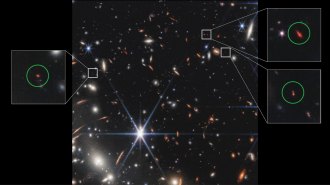 Astronomy
AstronomyThe James Webb telescope found ‘Green Pea’ galaxies in the early universe
The James Webb telescope spotted tiny “green” galaxies that might have helped trigger a dramatic cosmic makeover more than 13 billion years ago.
-
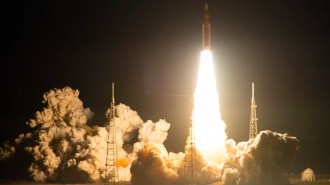 Astronomy
AstronomyThe James Webb Space Telescope wasn’t the only big space news in 2022
DART crashed into an asteroid, Artemis went to the moon and we got a pic of our galaxy’s monstrous black hole. Space was a busy place this year.
-
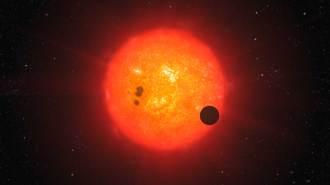 Astronomy
AstronomyThe James Webb telescope is getting glimpses of small, far-off planets
Hints of one exoplanet atmosphere’s chemical makeup and the discovery of a planet orbiting another star are two of the telescope’s early successes.
-
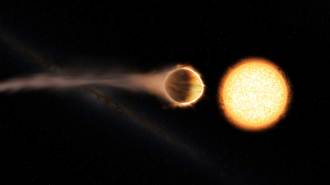 Astronomy
AstronomyThe first planet found by the Kepler space telescope is doomed
The exoplanet dubbed Kepler 1658b is spiraling toward its host star and will meet a fiery death in less than 3 million years.
-
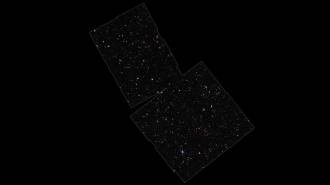 Astronomy
AstronomyHow the James Webb telescope’s glances back in time are reshaping cosmology
The observatory has found dozens of galaxies from less than 550 million years after the Big Bang, suggesting galaxies formed faster than once thought.
-
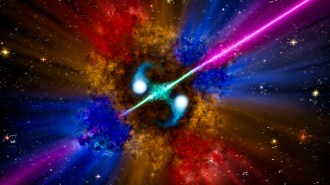 Astronomy
AstronomyA bizarre gamma-ray burst breaks the rules for these cosmic eruptions
The 50-second gamma-ray burst is the first that unambiguously breaks the rule that long bursts usually come from supernovas.
-
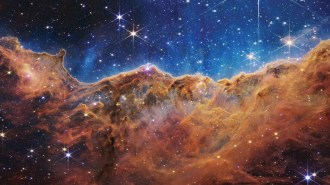 Astronomy
AstronomyIn 2022, the James Webb Space Telescope brought us new views of the cosmos
Science News looks back at some of the most stunning images from the James Webb telescope’s first year in space.
-
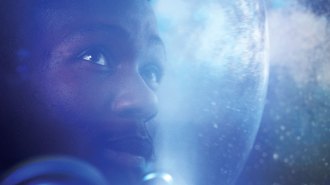 Space
SpaceArtemis missions will usher in a new, more diverse crew of astronauts
Space agencies are preparing to send the next generation of astronauts to the moon and beyond. Here’s how the next crews will be different from the last ones.
-
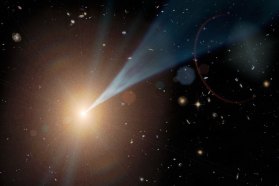 Astronomy
AstronomyHere’s why some supermassive black holes blaze so brightly
NASA’s IPXE X-ray satellite saw a telltale signature of shock waves propagating along a blazar’s high-speed jet, causing it to emit high-energy light.
-
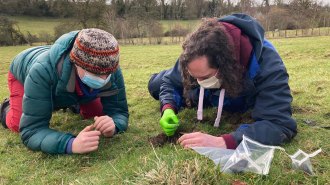 Planetary Science
Planetary ScienceThe pristine Winchcombe meteorite suggests that Earth’s water came from asteroids
Other meteorites have been recovered after being tracked from space to the ground, but never so quickly as the Winchcombe meteorite.
-
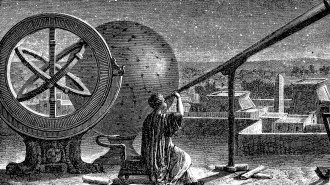 Astronomy
AstronomyPart of a lost, ancient star catalog has now been found
Greek astronomer Hipparchus may be the first to try to precisely map the stars. His lost work turned up on parchment that had been erased and reused.
-
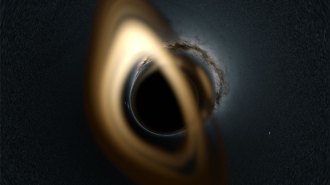 Astronomy
AstronomyAstronomers have found the closest known black hole to Earth
Discovered by how it pushes around a companion star, the black hole is about 1,500 light-years away and roughly 10 times the mass of the sun.